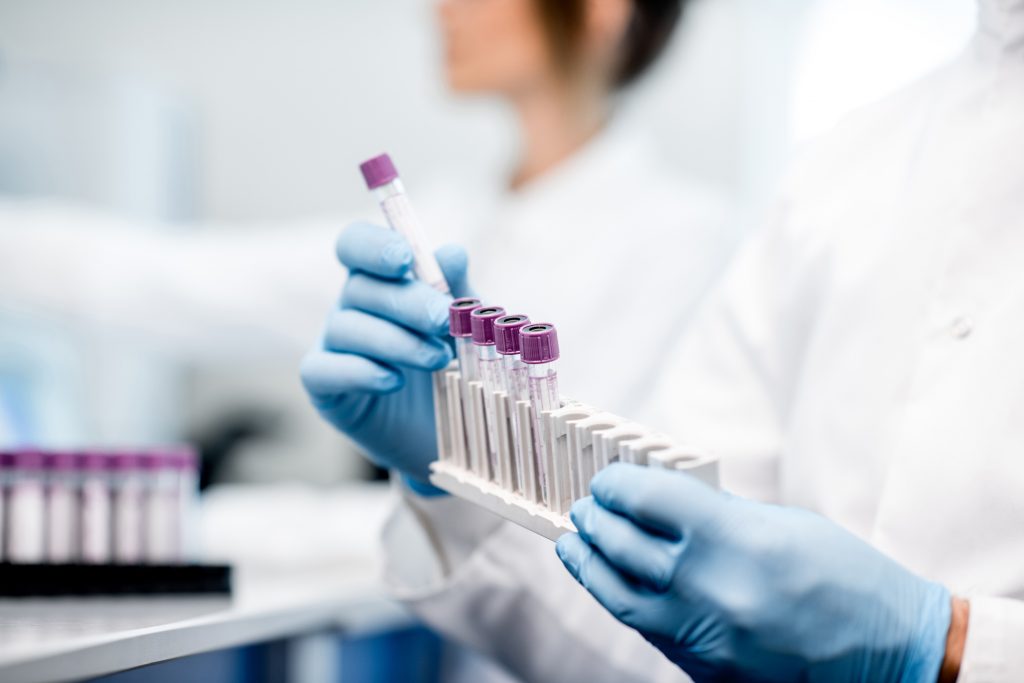The Novo Nordisk Foundation has awarded investigator grants of nearly DKK 100 million for research within bioscience and basic biomedicine as part of its Research Leader Programme. The Programme aims to support ambitious, original research projects and the continuing development of top researchers.
Cryoelectron microscopy is a hot topic. It is a game-changing technique in structural biology, and the researchers developing the technology were awarded the 2017 Nobel Prize in Chemistry.
Denmark is a hub for cryoelectron microscopy, with two platforms, one in Copenhagen and one in Aarhus, and a strong scientific network in the field.
This is reflected in this year’s investigator grants within bioscience and basic biomedicine, since two young and talented scientists have been recruited to Denmark to work on cryoelectron microscopy. One supported project, based in Copenhagen, is focusing on taste receptor proteins; the other, based in Aarhus, is investigating the structural details of RNA-modifying machines.
RNA and regulation of transcription was an overarching research theme in several of this year’s supported projects, including a project focusing on the important guardians of messenger RNA integrity and a project on the equally important controlled degradation of RNA. By determining the structures of proteins or investigating basic mechanisms of cellular regulation, scientists can much better understand key questions of biology related to human health and disease and apply this information to designing new drugs and treatments.
These projects are examples of the exciting research themes and state-of-the-art technologies of the 10 ambitious fundamental research projects that have just received grants of nearly DKK 10 million each from the Novo Nordisk Foundation as part of its Research Leader Programme. The grants awarded are for fundamental research within biomedicine and bioscience, with the overall aim of understanding the human organism and/or basic mechanisms underlying health and disease.
The grants last 5 years and aim to give the researchers the opportunity to pursue ambitious and relevant projects through targeted and long-term grants that ensure focus, continuity and stability in their research. All 10 grant recipients will also contribute to educating, training and inspiring the next generation of researchers.
The grants target research leaders at different stages of their careers, and grants were awarded in each of the following categories.
- Hallas-Møller Emerging Investigators. Young promising research leaders who want to establish or are in the process of establishing their own research group and research profile.
- Hallas-Møller Ascending Talented, established research leaders at the associate professor level.
- Distinguished Investigators. Professors of high international standing and calibre.
The grants were awarded in open competition following a call for applications. The interest for these grants was very high, and the Foundation received 124 applications for fundamental research projects within biomedicine and bioscience. The Foundation’s Committee on Bioscience and Basic Biomedicine assessed all applications and had the difficult task of selecting the 10 very best applications among the many great applications received.
The Foundation’s Research Leader Programme supports talented research leaders at different stages of their careers and aims to support the continuing development of top researchers. The Foundation just announced that it is has awarded a total of DKK 400 million to 41 research leaders under the Programme in 2020. Read the news article here and read more about all the Novo Nordisk Foundation Research Leader Programme at www.researchleaderprogramme.com.
Grants under the Programme are awarded within four scientific fields: endocrinology and metabolic research; biotechnology-based synthesis and production research; clinical and translational research; and bioscience and basic biomedical research. In 2020, additional grants will also be awarded within data science later in the year.
The 2020 grant recipients within bioscience and basic biomedicine are as follows.
Hallas-Møller Emerging Investigators
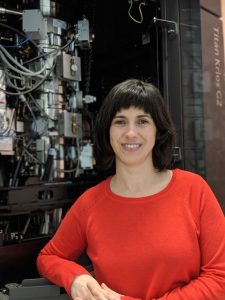
Ana Casañal, 40 years old, postdoctoral fellow
Ana Casañal will relocate from her postdoctoral position with Lori Passmore at the MRC Laboratory of Molecular Biology, Cambridge, United Kingdom to set up her independent research group at Aarhus University.
Project title: Molecular Mechanisms of RNA-Modifying Machines
Grant amount: DKK 9,999,402
Ana Casañal says: “Gene expression can be regulated at multiple levels. This allows organisms to respond rapidly to specific cellular stimuli while still maintaining a stable internal environment. This regulation is often achieved through chemical marks on DNA, RNA and proteins. Although RNA marks were discovered in the 1970s, only recently they have been described as key regulators of gene expression. They are involved in essential cellular roles, such as development and stress, and their deregulation is linked to human disorders, including cancer, infertility and depression. Despite their fundamental importance, the mechanisms that dictate how these marks are added on RNA and regulated remains poorly understood. My laboratory will combine structural biology and biochemical methods to determine the three-dimensional structure of the macromolecular machines that add and read out RNA marks. This will explain how RNA modifications work within the cell and how they impact disease, which, in turn, will help to discover new therapeutic targets for drug development.”
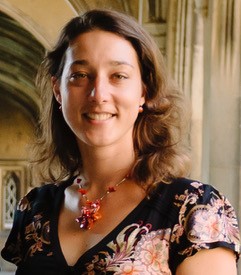
Céline Galvagnion, 37 years old, associate professor,
In 2019 Céline Galvagnion relocated from her postdoctoral position at German Centre for Neurodegenerative diseases (DZNE), Bonn, Germany to Department of Drug Design and Pharmacology, University of Copenhagen, where she is establishing her independent research group.
Project title:
Brain lipid ageing and selective neuronal vulnerability in the context of Parkinson’s Disease
Grant amount: DKK 9,978,812
Céline Galvagnion says: “Ageing is the highest risk factor for Parkinson’s Disease (PD). PD is characterised by the loss of specific cells and the deposition of protein clumps in specific areas in patients’ brains. The rationale behind this selective vulnerability is not yet understood although required for a better understanding of the early events and the progression of PD. Our brain is the second richest organ in lipid (fat) molecules, and each brain area or cell type is characterised by a specific lipid composition. My research aims at testing the hypothesis that the specific lipid composition of brain areas and cells is at the origin of their selective vulnerability to ageing and PD. First, I will investigate the lipid composition of brain areas and cells of PD patients in order to identify lipids associated with a higher vulnerability to ageing and PD. Then, I will study at the molecular level how these lipids can lead to the formation of protein clumps resembling those found in PD patients’ brains.”
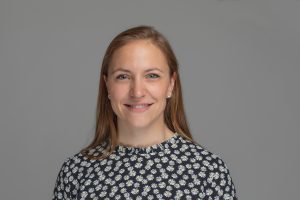
Henriette Autzen, 32 years old, group leader
Department of Biology, University of Copenhagen
Project title: A Spoon Full of Sugar Makes the Medicine Go Down: Decoding the Molecular Mechanisms of Sweet and Savoury Taste Signalling
Grant amount: DKK 9,999,375
Henriette Autzen says: “Sweet, umami, bitter, salt and sour are the five tastes, which allow us to enjoy home-cooked meals or motivate us to seek out Michelin-star restaurants to experience new, imaginative dishes. However, gustatory perception is also tied to survival and helps our bodies identify toxins, maintain nutrition and regulate gastrointestinal motility. The receptors involved in taste signalling are known, but details on their molecular mechanisms remain unknown. My project aims at advancing our understanding of the molecular mechanisms underlying sweet and umami taste perception by exploring the cutting edge of single-particle cryoelectron microscopy to study the structure, dynamics and function of membrane-bound taste receptors. Since a major bottleneck in cryoelectron microscopy is sample preparation, I aim to extend our understanding beyond the receptors, developing sample-preparation approaches to facilitate native-like conditions for membrane proteins outside their home environment.”
On 1 February 2020, Henriette Autzen relocated from her postdoctoral position at the University of California, San Francisco, USA to the Department of Biology, University of Copenhagen, where she is setting up her independent research group.
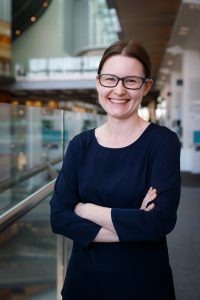
Lea Haarup Gregersen, 34 years old, postdoctoral fellow
Lea Haarup Gregersen will relocate from her postdoctoral position at the Francis Crick Institute, United Kingdom to set up her independent research group at the University of Copenhagen in autumn 2020.
Project title: Guardians of Transcriptional Integrity: Regulation of mRNA Transcript Cleavage and Termination by RNA Polymerase II–associated Factors
Grant amount: DKK 9,998,908
Lea Haarup Gregersen says: “Hereditary information within our DNA is organized in units called genes. Genes are transcribed by RNA polymerase II (RNAPII) to produce RNA transcripts, which contain essential information required for our cells to function. Many genes express several alternative RNA transcripts that contain different information, for instance by utilizing different transcript termination sites. Importantly, this dynamic process takes place as RNAPII is moving across the gene (co-transcriptionally), by proteins associating temporarily with RNAPII to ensure correct RNA processing. This project focuses on exploring RNAPII-associated proteins involved in regulating RNA transcript termination and on discovering and elucidating the function of new proteins involved in co-transcriptional processing. Our research will be important to understand how our genetically encoded information is ‘read’ by the cellular machinery. This has implications for our understanding of human diseases, such as cancer.”
Hallas-Møller Ascending Investigators
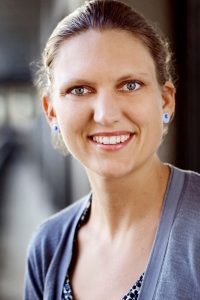
Alicia Lundby, 39 years old, associate professor
Department of Biomedical Sciences, University of Copenhagen
Project Title: Unravelling Novel Molecular Mechanisms of Cardiac Arrhythmia from Onco-cardiology
Grant amount: DKK 9,894,737
Alicia Lundby says: “Cardiac arrhythmias are a leading cause of death in the Western world, partly because the molecular causes are not well established. New insights into causal mechanisms are becoming apparent from cancer patients treated with tyrosine kinase inhibitors who develop drug-dependent cardiac arrhythmias. It is, at present, unclear why the inhibitors cause arrhythmia. Based on such observations from onco-cardiology, I propose tyrosine kinase signalling as a novel causal mechanism of arrhythmias. In this project, I propose to identify the proteins and signalling pathways that cause the problematic effects of tyrosine kinase inhibitors in the heart. To do so, I will perform quantitative analyses of phosphotyrosine-dependent signalling in the heart and identify dysregulation caused by arrhythmogenic cancer drug stimulation. This will allow us to outline phosphotyrosine signalling in the healthy heart and to understand how dysregulation of this is linked to arrhythmia.”
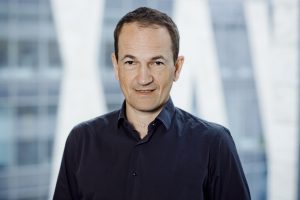
Joachim Weischenfeldt, 45 years old, associate professor
Biotech Research & Innovation Centre (BRIC)/Finsenlaboratoriet, University of Copenhagen
Project title: Spatiotemporal Analysis of Clonal Origin and Dynamics in Cancer
Grant amount: DKK 9,980,000
Joachim Weischenfeldt says: “The life history of cancer is initiated and propagated by mutations. Identifying the earliest mutagenic processes that may ultimately lead to treatment resistance is of major clinical relevance for a more precise diagnosis and prognosis. Cancer cells are known to interact and evolve in time and space through interactions with the local environment and through constant evolution. This is true for prostate cancer, the most common non-skin cancer in men. The disease is proposed to arise through interactions with tumour-promoting cells and factors in the tumour microenvironment of the prostate that cause a mutagenic ‘field effect’, which can impact large areas of the prostate. We aim to identify the earliest mutational processes and examine how tumour clones evolve and compete by using novel single-cell-based methods combined with tumour evolution tracing in patients, with the overarching goal to identify early markers that can predict clinical trajectories of aggressive disease.”
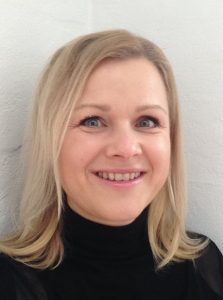
Lene Niemann Nejsum, 46 years old, associate professor
Department of Clinical Medicine, Aarhus University
Project title: The Renal Urinary Concentration Mechanism: towards a Detailed Model of AQP2 Shuttling
Grant amount: DKK 10,000,000
Lene Niemann Nejsum says: “Multiple diseases are associated with dysregulation of body water balance; either water loss or water retention. In the kidneys, a water channel protein, aquaporin-2 (AQP2), is pivotal in regulating urine concentration and hence, in regulating body water balance. AQP2 is dysregulated in multiple water balance disorders. My team will use newly developed bioimaging methods that enable the visualization of AQP2 in renal cells. We will use these methods to generate a new level of understanding regarding the mechanisms that regulate AQP2. This understanding will advance the ability to develop treatments based on targeting AQP2 dysregulation to restore body water balance.”
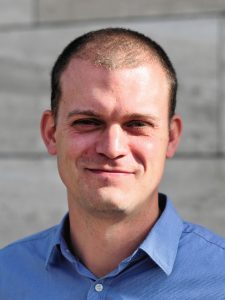
Robin Andersson, 39 years old, associate professor
Department of Biology, University of Copenhagen
Project title: Functional and Topological Redundancies in Transcriptional Regulation
Grant amount: DKK 9,994,444
Robin Andersson says: “Cellular activities are controlled by specific processes during development and in response to environmental changes. Which genes are active and how much RNA is produced at a given time point in a cell are coordinated by specific regulatory elements encoded in the DNA that, via binding of dedicated proteins (transcription factors), determine the rate of transcription. These regulatory processes are essential for a cell, and genetic disruptions of regulatory elements may therefore lead to disease. This project will investigate the mechanistic basis of how regulatory activities are conveyed via transcription factors and assess the occurrence of failsafe systems mediated via redundant regulatory elements that buffer the impact of possible mutations. Understanding these processes and the interplay of regulatory elements is of high importance to better understand transcriptional regulation and the genetic basis of disease, which may ultimately lead to better diagnostics and treatments.”
Distinguished Investigators
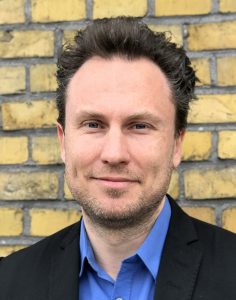
Albin Sandelin, 44 years old, professor
Department of Biology, University of Copenhagen
Project title: Deciphering the Code of Nuclear RNA Degradation by Deep Learning and Transcriptomics
Grant amount: DKK 9,995,004
Albin Sandelin says: “The most fundamental process in molecular biology is reading of genes in DNA into RNA (transcription), which is then translated into proteins. However, we also need systems to remove RNAs from cells – RNA degradation. Because RNA degradation rates vary between different RNAs, RNA transcription and degradation together shape the concentration of each RNA in the cell. Therefore, understanding RNA degradation systems is necessary to understand the cell. Our current understanding is not at the level at which we can predict the RNA degradation rates of a specific RNA based on its sequence and chemical properties. In this project, we will merge state-of-the-art methods for profiling RNA properties with the latest development in computer science: deep learning. We will create methods that can predict RNA degradation rates and discover what biological signals are important for RNA degradation. This will be important for cell biology but also for RNA-based medicine and biotechnology.”
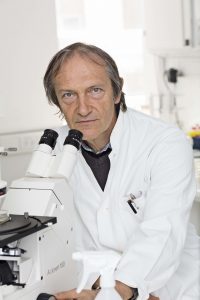
Jiri Bartek, 66 years old, professor
Danish Cancer Society Research Center, Danish Cancer Society
Project title: Replication Stress: Mechanisms and Roles in Human Health and Disease
Grant amount: DKK 10,000,000
Jiri Bartek says: “Each time our cells divide, they first have to accurately and completely duplicate their entire genome, in a process called DNA replication. This fundamental mechanism is essential for organismal development and tissue renewal during life. On the other hand, DNA replication is also challenging for the cells due to many potential obstacles on DNA that may slow down or block the process, causing a state of emergency called replication stress. Mistakes in either replication or response to replication stress can possibly lead to abnormally high or too little proliferation and lead to life-threatening diseases such as developmental defects, premature ageing or cancer. In this project, we will investigate how the DNA replication machinery operates in human cells and the molecular causes and consequences of replication stress. This knowledge will help us to better understand the basis of human health and use this knowledge to diagnose, treat or prevent cancer and slow down ageing.”
About the Novo Nordisk Foundation
The Novo Nordisk Foundation is an independent Danish foundation with corporate interests. It has two objectives: 1) to provide a stable basis for the commercial and research activities of the companies in the Novo Group; and 2) to support scientific, humanitarian and social causes.
The vision of the Foundation is to contribute significantly to research and development that improves the lives of people and the sustainability of society. Since 2010, the Foundation has donated more than DKK 25 billion (€3.3 billion), primarily for research at public institutions and hospitals in Denmark and the other Nordic countries as well as research-based treatment and prevention of diabetes. Read more at www.novonordiskfonden.dk/en.
Further information
Tina Thorslund, Senior Scientific Manager, phone: +45 3527 6677, titn@novo.dk
Christian Mostrup, Senior Programme Lead, Communications, phone: +45 3067 4805, cims@novo.dk

